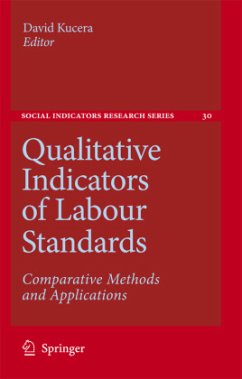
Compliance at Work
Protecting Identity and Science Practice under Corporatisation
Versandkostenfrei!
Versandfertig in 6-10 Tagen
52,99 €
inkl. MwSt.

PAYBACK Punkte
26 °P sammeln!
Many governments are promoting a knowledge economy. This has often involved the restructuring of the way in which public scientific research is funded with a focus on commercial products and processes, government priorities and accountability. There has been little academic literature considering the impact of this on those who work in scientific research. This book reports on an ethnography of a state owned research organisation that corporatised and instituted a system of normative control of those who worked in it. Scientists and technical workers reacted negatively as their identities as s...
Many governments are promoting a knowledge economy.
This has often involved the restructuring of the way
in which public scientific research is funded with a
focus on commercial products and processes,
government priorities and accountability. There has
been little academic literature considering the
impact of this on those who work in scientific
research. This book reports on an ethnography of a
state owned research organisation that corporatised
and instituted a system of normative control of
those who worked in it. Scientists and technical
workers reacted negatively as their identities as
scientific and autonomous workers were challenged.
Two models are produced of how these workers
resisted their resultant experiences of estrangement
and alienation, enabling them to comply with the
system allowing work to continue while maintaining
and protecting their identities. This analysis will
be of interest to those who work in organisations
and manage knowledge workers, and those who study
such workers and organisational change, for example,
sociologists of work and organisational, management
and human resource researchers.
This has often involved the restructuring of the way
in which public scientific research is funded with a
focus on commercial products and processes,
government priorities and accountability. There has
been little academic literature considering the
impact of this on those who work in scientific
research. This book reports on an ethnography of a
state owned research organisation that corporatised
and instituted a system of normative control of
those who worked in it. Scientists and technical
workers reacted negatively as their identities as
scientific and autonomous workers were challenged.
Two models are produced of how these workers
resisted their resultant experiences of estrangement
and alienation, enabling them to comply with the
system allowing work to continue while maintaining
and protecting their identities. This analysis will
be of interest to those who work in organisations
and manage knowledge workers, and those who study
such workers and organisational change, for example,
sociologists of work and organisational, management
and human resource researchers.












